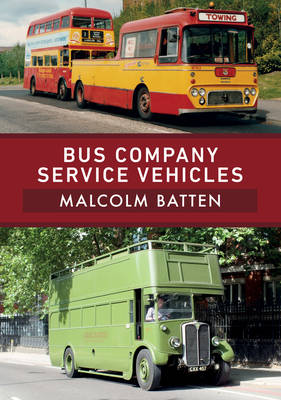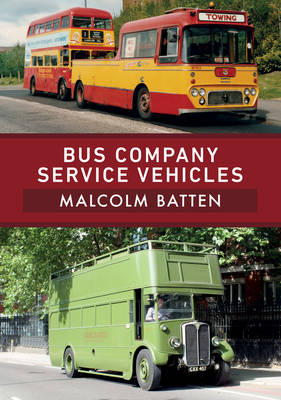
Door een staking bij bpost kan je online bestelling op dit moment iets langer onderweg zijn dan voorzien. Dringend iets nodig? Onze winkels ontvangen jou met open armen!
- Afhalen na 1 uur in een winkel met voorraad
- Gratis thuislevering in België vanaf € 30
- Ruim aanbod met 7 miljoen producten
Door een staking bij bpost kan je online bestelling op dit moment iets langer onderweg zijn dan voorzien. Dringend iets nodig? Onze winkels ontvangen jou met open armen!
- Afhalen na 1 uur in een winkel met voorraad
- Gratis thuislevering in België vanaf € 30
- Ruim aanbod met 7 miljoen producten
Zoeken
Omschrijving
In the days before privatisation, many bus companies adapted old buses for a variety of specialist uses as service vehicles. Using the skills and ingenuity of their workshops, buses might become, among other things, stores vans, tree loppers or uniform stores. Trolleybuses may have been converted to tower wagons to maintain the overhead wires. Some bus operators converted old buses to towing lorries to rescue broken down vehicles. Others preferred ex-military trucks such as the AEC Matador. These came with somewhat austere cabs, but here again the body shop would often come up with a custom-built body using various bus parts. Buses would also be adapted to serve as information offices or publicity buses, promoting such things as holiday tours or special ticket offers. Since privatisation, such practices have died out for a variety of reasons. Expensive, in-house workshops have largely been closed. Construction and Use Regulations have been tightened up. Emissions zone restrictions may limit the use of older less clean engines in city centres. Furthermore the modern low-floor rear-engine buses are probably less suited to such conversions. Companies will use the services of specialist commercial bus and truck rescue services rather than retaining their own towing vehicles. This book looks at a variety of service vehicles from around the country over the last fifty years, including examples that have survived into preservation.
Specificaties
Betrokkenen
- Auteur(s):
- Uitgeverij:
Inhoud
- Aantal bladzijden:
- 96
- Taal:
- Engels
Eigenschappen
- Productcode (EAN):
- 9781398104747
- Verschijningsdatum:
- 15/07/2021
- Uitvoering:
- Paperback
- Formaat:
- Trade paperback (VS)
- Afmetingen:
- 168 mm x 231 mm
- Gewicht:
- 204 g

Alleen bij Standaard Boekhandel
+ 44 punten op je klantenkaart van Standaard Boekhandel
Beoordelingen
We publiceren alleen reviews die voldoen aan de voorwaarden voor reviews. Bekijk onze voorwaarden voor reviews.











